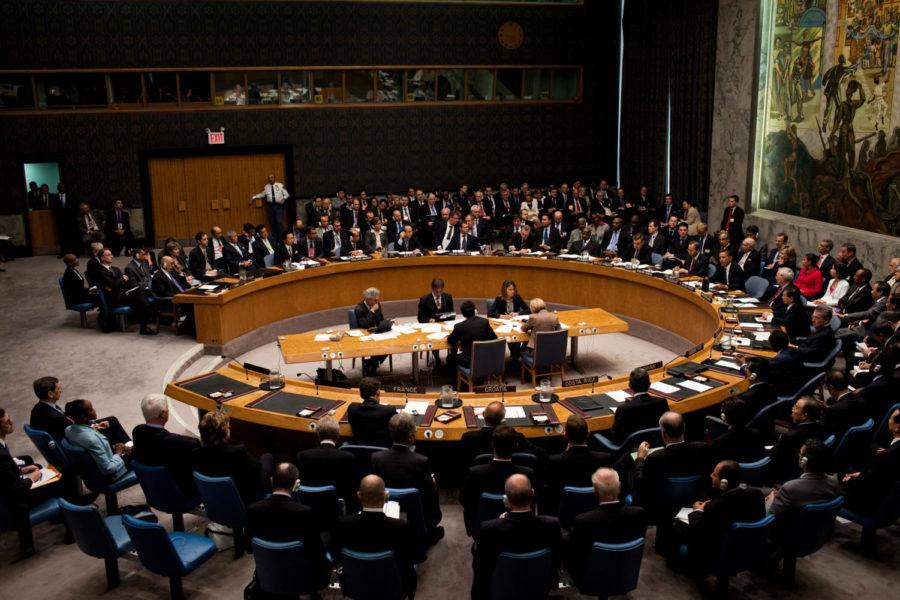Editorial: Vetoes hinder progress for UN council
there looks to be little possibility of the voting and permanent member rules ever changing in the UN. This means that as the world puts its trust in the UN to provide essential peacekeeping missions, the organization will continue to fail in that mission time and time again in the future.
March 6, 2014
The charter of the United Nations points to four main purposes which the intergovernmental organization was created to achieve and maintain. The first such purpose states that the UN was founded “To maintain international peace and security.” The remaining purposes work to support this original premise.
Currently, the UN has peacekeeping missions in several countries around the world, including Syria. When it comes to the UN’s action plan on mounting issues in the Ukraine surrounding Crimea and Russian forces, however, the peacekeeping organization remains in deadlock.
It is not difficult to see what causes this gridlock. The UN’s Security Council, made up of five permanent members and 10 non-permanent member states, is charged with recognizing when there is an international threat to peace or to the security of a UN member country.
The five permanent members of the Security Council — the United States, United Kingdom, China, France and Russia — all have the power to veto any proposal that goes through the council. Even if a proposal receives the required nine votes of approval, one veto from a permanent member means the proposal will fail. Article 27 of the UN’s charter, which defines the rules of voting in the Security Council, effectively renders the council incapable of a response in scenarios that involve a permanent member’s aggressive actions.
In the case of Ukraine, that member is Russia. As the Security Council discusses the unfolding problems in Ukraine, Russia will be a major aspect of the conversation. If the Security Council were to decide that UN forces need to intervene, it would be practically assured that Russia would veto any proposal.
The UN was first established in 1945, back when only 51 member states were involved and the greatest perceived threats were another German or Japanese war effort. The UN has grown considerably since that time with 193 member states, and the sources of global unrest have likewise shifted. With these developments, it would only be beneficial for the UN to consider changing its rules involving permanent Security Council members and their veto powers.
Unfortunately, there looks to be little possibility of these rules ever changing. Since any permanent member could veto the proposal, there is realistically no way to change the current structure. This means that as the world puts its trust in the UN to provide essential peacekeeping missions, the organization will continue to fail time and time again if one of the five veto powers has their own agenda.
Even with little hope of meaningful reform in the UN, there are other potential sources of change. Regional alliances, such as the Organization of American States or the European Union could expand their purview, eventually rivaling the UN for global legitimacy. This may seem unlikely, but as the UN continues to show an outdated leadership structure that gets in the way of its founding goals, seemingly unrealistic options may begin to look more and more appealing to a weary international community.







